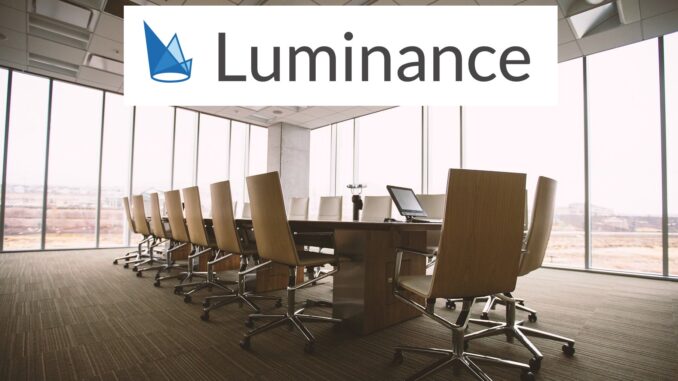
Luminance has launched what it’s calling a ‘brand new AI-powered platform’ called Luminance Corporate, which will focus on the contract negotiation phase of inhouse legal work, such as keeping tabs on counter-party clause changes. The new approach will also work within Microsoft Word.
Of most interest is the ability to ‘proactively search documents to see what changes have been made by counter-parties, including those changes which may have been conducted without track changes being switched on in Word‘.
The new system can ‘show how clauses have altered throughout the negotiation, with red- and green-lining exposing how far the drafting has deviated from the original position’.
Another highlight is that when negotiating on a specific clause ‘Luminance will [also] show lawyers precedent at the click of a button, highlighting areas where conceptually similar clauses have been previously signed off by their organisation’, the company explained.
As Luminance stated: ‘As well as saving an enormous amount of time, this … will ensure that in-house lawyers have complete oversight over version control, whilst also providing key information about contracts that have been previously drafted and executed to ensure that future negotiations run as smoothly as possible.’
It can also use its NLP capabilities as it does for bulk review, albeit now on a single contract, for rapidly analysing a document to show key clauses, parties and governing law.
Is this a big deal? Yep. Luminance has tended – like most NLP analysis tools – to focus on large-scale review, e.g. for M&A due diligence, (and more recently for some eDiscovery tasks). This move takes it into the pre-signature stage of a contract’s lifecycle, and puts it in competition with a growing range of companies in this segment, from BlackBoiler to ThoughtRiver and many others. It also increases its focus on the inhouse market.
In terms of Luminance’s view of its new capability, recently appointed CEO, Eleanor Weaver, said: ‘Today, inhouse legal teams are often forced to rely on outdated and convoluted approaches to reviewing and amending contracts, including making tracked changes in Word which are then reconciled over email and stored on personal laptops. Luminance’s AI is allowing inhouse teams to focus time and money where it matters, whilst also ensuring that nothing goes unnoticed.’
They also get a noteworthy vote of support from Rosemary Martin, Group General Counsel & Company Secretary at Vodafone Group, who said: ‘Tools like Luminance that enable lawyers to quickly and easily see which areas of a contract need to be negotiated can speed up the time to contract – and faster contracting means faster revenue generation. We are at a point where businesses need to be thinking about how cutting-edge technology can benefit their organisations and powerful AI can help in-house legal teams.’
So, there you go. It’s once again a case of ‘have NLP, will make legal tech applications’, i.e. once you have software that can read text, then it’s really down to a company’s lateral thinking as to where they can take it. From legal research, to KM, to bulk transactional review, to eDiscovery, and also contract negotiation and review, this technology has spread far and wide across commercial legal world use cases. And Luminance is now working in several of the above areas.
1 Trackback / Pingback
Comments are closed.